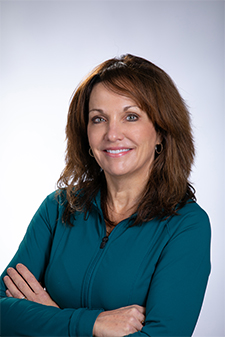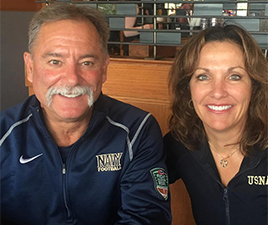Marie Price 
Board member since 2015
As she approaches the end of her service on our Board, Marie celebrates the community-centered culture that thrives here in north Idaho. Having spent her career working with individuals with barriers to employment, she first came to UWNI as a Community Impact Council member in the Financial Stability area, where she was able to use her perspectives from her own financial challenges to inform our community-driven funding decisions. As a Board member, she’s been passionate about our advocacy for ALICE families and believes that with a little hope, determination, and a willingness to ask for help, we all can achieve better outcomes for ourselves. After all, she says, “We’re in this together.” We’re so proud that Marie chooses to #LiveUnited!
[*The following interview has been edited for clarity and length.]
What makes you proud to be living in north Idaho?
While I grew up in Seattle, I’ve lived in north Idaho since 1991 and I love this community. It is truly home for me. What I love about north Idaho is the people. We’re a people that really care and are community focused. So many of our community members love this community and want to see our community members thrive. The caring and philanthropy in this area are truly second-to-none.
How did you come to connect with our local United Way?
I was working with North Idaho College when I joined United Way and was invited by a previous Board member who recommended me. She thought I would be a good candidate for the Board as I had volunteered for the Community Impact Council, along with my background, felt I would be a good match for supporting the mission of United Way.
Who inspires you in our community? Who are the hand-raisers and game-changers in your life?
Our CEO Mark inspires me! And we can’t talk about game-changers without talking about our past Board President, Wanda Quinn. She has this quiet way of making our community better; she’s the wind beneath so many people’s wings. She’s humble, caring, and very sharp, too! Wanda really helps people be the best versions of themselves, and she helps organizations become better.
At UWNI, we work hard to advocate for the ALICE (Asset-Limited, Income-Constrained Employed) population. What did you find most surprising (or sobering!) when you first learned about ALICE?
Learning about the percentage of ALICE population in our community was very sobering to me. At the same time, it was great to see the resources we have available to work with those who are considered part of the ALICE population, to give them the opportunity to improve their situation.
What is the most important lesson you’ve learned about building financial stability? What most helps you find financial stability in your life?
The number one lesson I’ve learned about building financial stability is to have hope! You have to believe that you can change your circumstance. Number two is to find the resources, look at where you want to be, and consider what it’s going to take to get there. So, it’s hope and belief, and then figuring out what it’s going to take. Do I need to gain new skills, and if so, where do I need to go to gain them and what resources are available to help me? For example, in a job it may be that you start out at an entry-level or part-time position, but know that you can build the skills or experience to advance. Don't give up! It might mean going back to school. Whether it’s a short-term credential, a degree or a certificate, those kinds of investments and sacrifices can help you advance. So, it’s that hope, that belief, and that willingness to try. It may take short-term sacrifice, but there are supports there to help if you are determined to change your circumstances. You have to have the courage to take that first step. Sometimes it takes a little humility to say, “You know what? I’m going to ask for help.” A lot of times it’s pride that people have to get past, that fear of being looked down upon if you ask for help or admit that you’re in a place where you don’t want to be. You have to be willing to learn. For example, our community has some great banking resources that teach financial skills, and those are so important because it’s not always what you make, it’s what you do with what you make that can make the biggest difference.
Talking about finances can be uncomfortable and is often a taboo topic. If you’re willing to be brave and get vulnerable with me, would you help us break the stigma? Tell us about a time where you experienced financial instability.
When I graduated from college, I had a degree in psychology, and that’s not necessarily the most marketable degree. I didn’t know what type of career I wanted to have, so I spent a few years working seasonal jobs in the recreation industry. They were low-paying jobs, and I would be employed during the winter and during the summer, but I was laid off during the shoulder seasons; something a lot of people in this community can relate to. There was a time in my twenties when I had to go on food stamps and that was very humbling. It made me determined to go back to school to develop skills for full-time, year-round employment where I could be self-sufficient.

Which financial stability projects and partnerships are you most proud of at UWNI?
I'm proud of the way United Way has stepped up with COVID. Our partnership with CDAIDE has been phenomenal. As you know, the Chamber awarded UWNI with Nonprofit of the Year and I believe a lot of that had to do with our rapid response to COVID. Having our Board involved with ensuring the funds raised went to those most in need really helped to fill gaps, like in child care and for those individuals in the hospitality industry that were laid off and needed support. I think was great.
Overall, I'm proud of the fact that United Way has been an advocate for ALICE, and has really brought ALICE to top of mind, to the point where ALICE has become a more familiar acronym to many in our community. The data we have to back up the information about ALICE is impactful.
I’ve been working with individuals who have barriers to employment or are entry-level employees for many years. I didn’t have the language to describe their situation until United Way developed the ALICE report. Now, we’re really able to show the need that this is where we need to support people in helping them move away from being one unexpected financial burden away from a crisis like housing insecurity.
There’s a popular saying circulating in the nonprofit/helping community: “Nothing for us, without us.” How does United Way model this ethos in its work towards our community’s financial stability?
At UWNI, we believe all of our stakeholders should have a place at the table. We must welcome input and really allow ourselves to step into the shoes of those that we serve and do our best to see the world through their eyes.
It’s not just a hand-out or sympathy, it’s more like, we’re in this together. I was once in that situation, I can understand, and I am no better than you, because we all can have circumstances in our life that causes challenges, and we’re here to work through it together.
What does it mean to you to Live United?
To me, Living United means to always give service to our community. We’re in this together. We want everyone in our community to thrive and to have opportunity, and we work to find ways and provide solutions and opportunities to get there.
